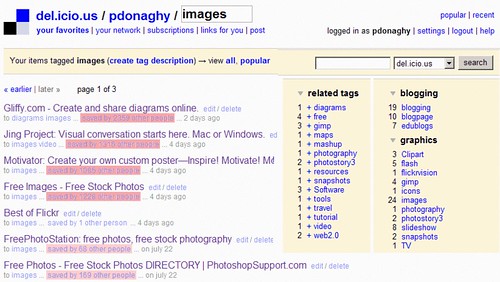
The evaluation of sources: it’s a “boiling issue” all of us have had to cope with several times in his/her scholastic career. Sarah definitely hit the bull’s eye: the reliability and the trustworthiness of our master thesis will greatly depend on the consistency of the material we will collect and on which we will base our line of reasoning. Therefore, it’s vitally important being prepared to judge carefully what we happen to read, not to run the risk of including poor and incoherent information.
I read the tips given in the three websites Sarah suggested and I found them extremely clear and useful: they were undoubtedly written by people who experienced themselves the difficult “struggle” against rubbish news! I use such a term because for me the search for reliable sources can be compared to a real fight to the death, especially if you decide to surf the Net: to type the keywords and to start the search engine is to open Pandora’s box! You are literally overwhelmed by thousands, even millions of answers to your question and you necessarily have to find a way to identify what is really worth reading.
While looking for more information about this topic, I came across another remarkable website (Module 3 Evaluating) containing smart guidelines not to get lost in the “tsunami” of suggestions and links the Internet offers you. By and large, it says the same things as the sites I previously mentioned, but it also highlights the importance of checking the last part of the url (“top level domain name”) of the pages you would like to visit. Sarah, too, pointed out this criterion of selection in class and it is the first strategy I adopt when I judge online sources: the information you can get from a website run by government agencies (.gov), non-profit organizations (.org) or education institutions (.edu or .ac.uk.) is certainly more valuable than the news you can spot in essay banks, blogs, chat rooms and personal webpages. In this cases, as the article from the University of Essex clearly explains, “you know nothing about who the authors are, or what authority they have for expressing a view on the subject”. If you want your work to be serious and taken into consideration by the people who will read it, you can’t refer to what an unknown, sometimes even anonymous, author has written on his page: the website could contain just his opinion, groundless conjectures he developed on his own. Then, your teacher could think that adding to the bibliography of your thesis the url of chat rooms and blogs is not very professional!
The main problem is that looking for valid and useful news is always tiring and time-demanding. In the past we used to turn over the pages of piles of books to carry out our works of research: it took a lot of time, but at least we knew (or we hoped!) that the authors were experts in the field; many of them had written other articles, essays, books, so we had the guarantee that what we read were thoughtful reflections and theories. Now books have become old-fashioned, everything you are looking for is on the Web: it is true, but we also learnt that the right way to follow is often hidden among many dead paths. Finding it demands time and people are not willing to waste hours and hours to make sure of the validity of the information Google has first displayed on their screen. In the website I mentioned above there is an interesting survey about the way people carry out their research: you can answer yourself the questions and then check the results. The data are stricking, I report them here:
- to start a research paper the 66% of people look for websites;
- the 48% spend less than five minutes to select the source;
- to determine if information is factual the 47% simply assume that what they read is probably true.
This is why bad written and unreliable essays are so common and plagiarism is such a current issue.
In order to screen the list of returns search engines give you, using specialized search engines could be a good idea: I tried myself Mamma (what a nice name!) and it greatly reduces the number of links you can check by providing only the most relevant returns from the other search engines it searches.
Once you have checked if the website and his/her author are really trustworthy, there is one more question you should ask yourself: when was the page last updated? As you can read in the article from Purdue' Online Writing Lab, “some information becomes dated when new research is available, but other older sources of information can be quite sound 50 or 100 years later”. It is important to keep in our mind what kind of information we need to decide if a piece of writing is outdated or not (in respect of this matter, the website I suggested you was last updated in 2003, but you can still answer the survey, so the results are reliable!).
This long process is another clear proof that the Internet can make our life easier, but in order to use it properly we have to resort to our criticism and to accept the fact that we have to spend some of our precious time.












